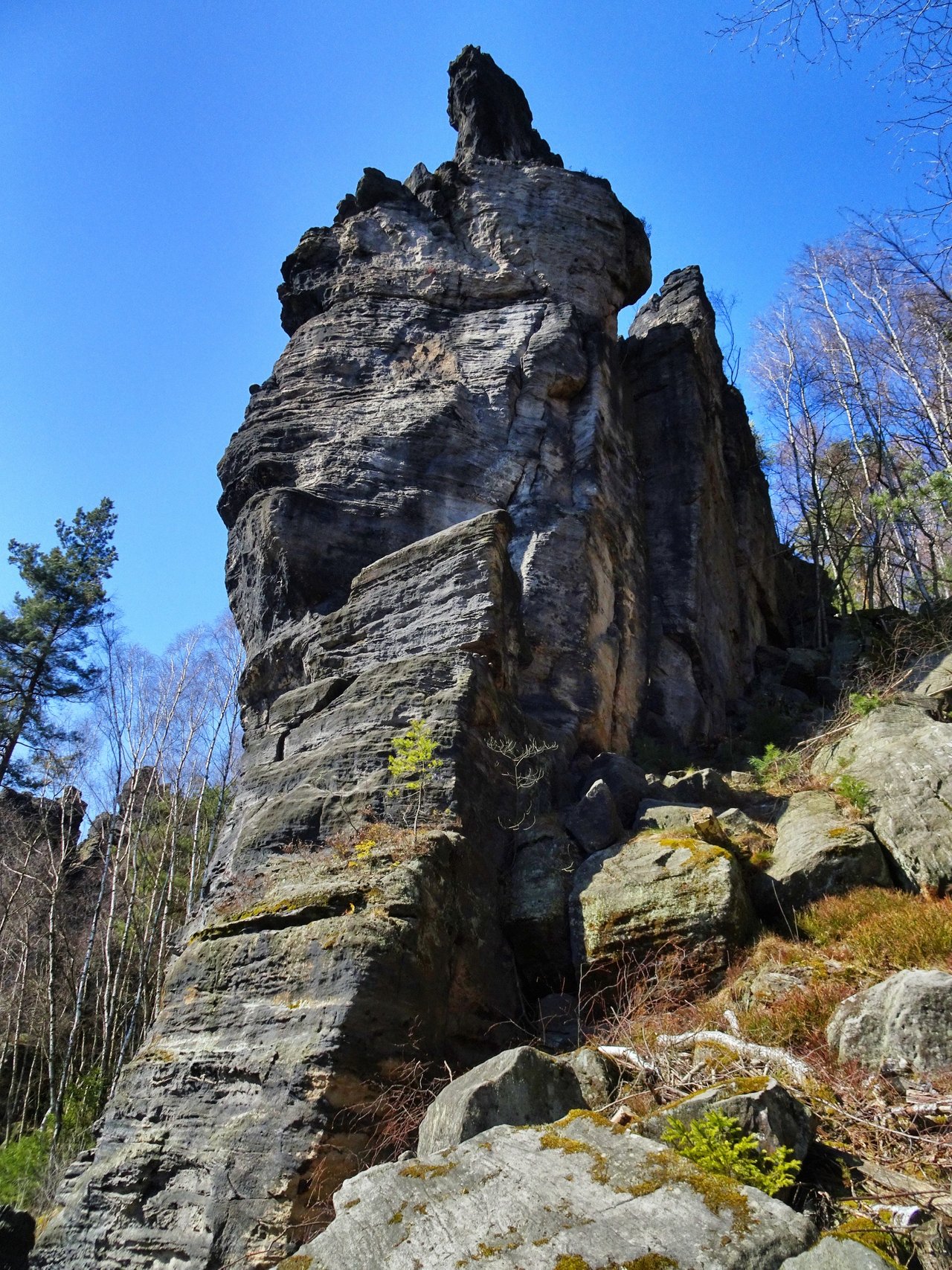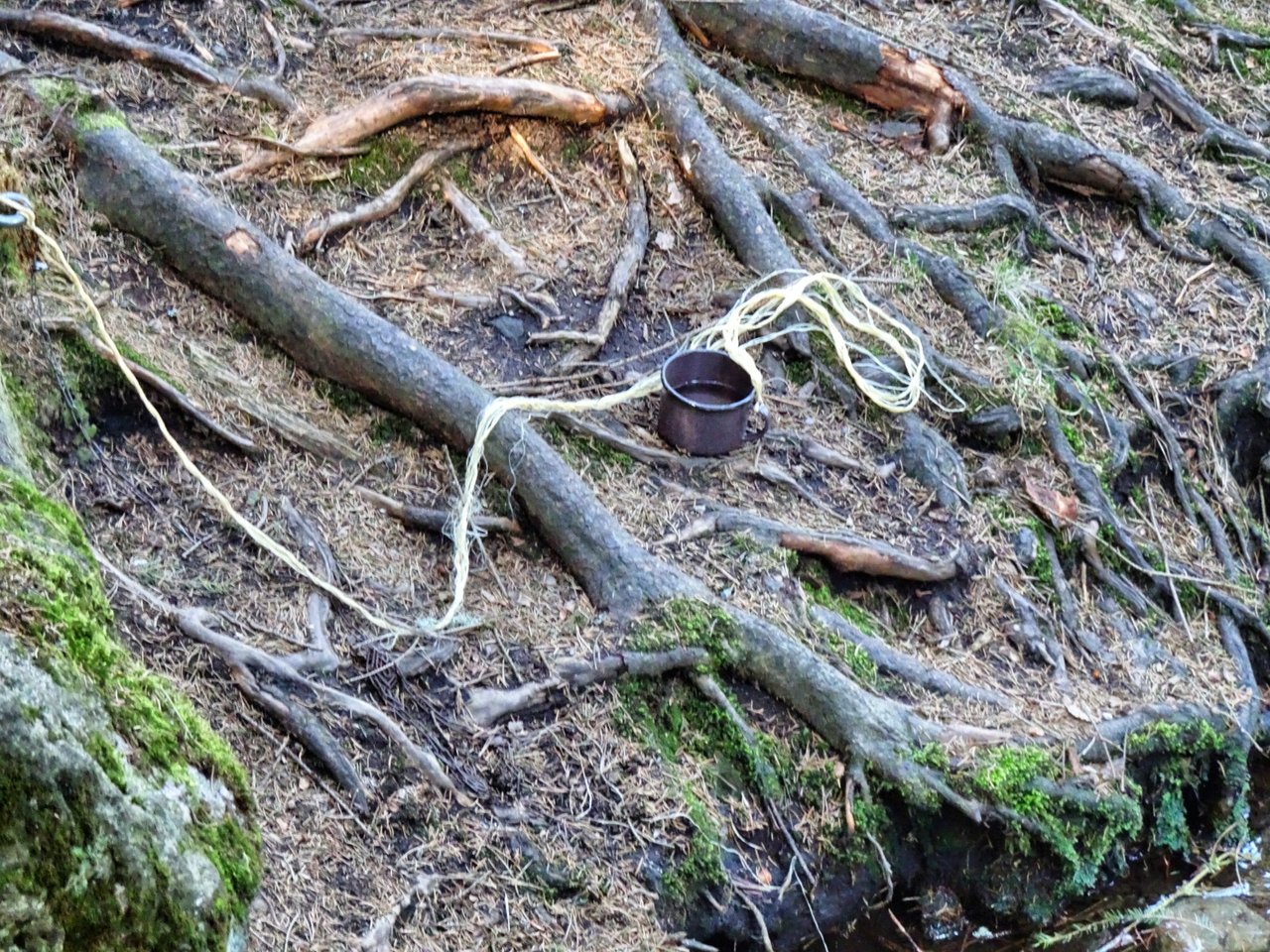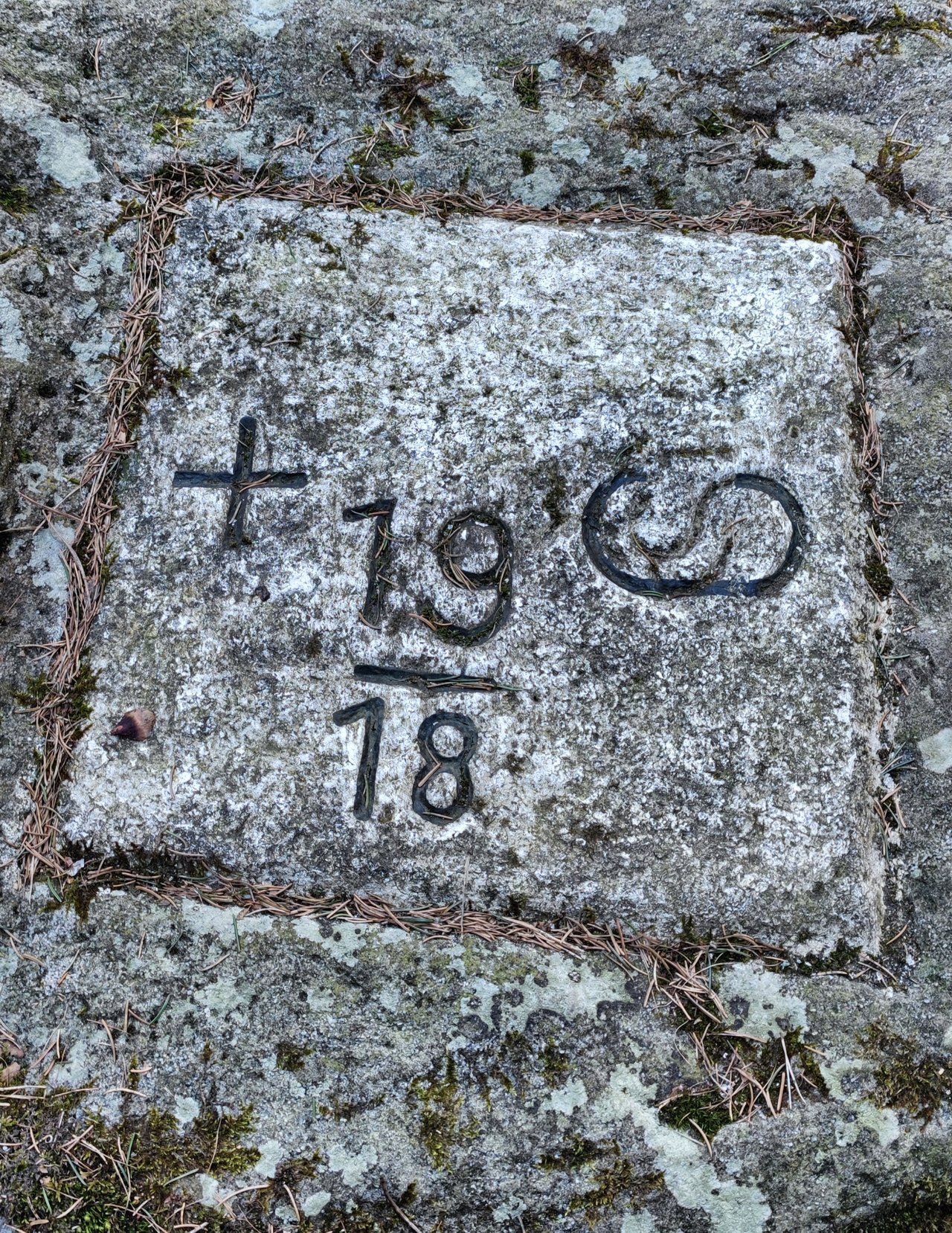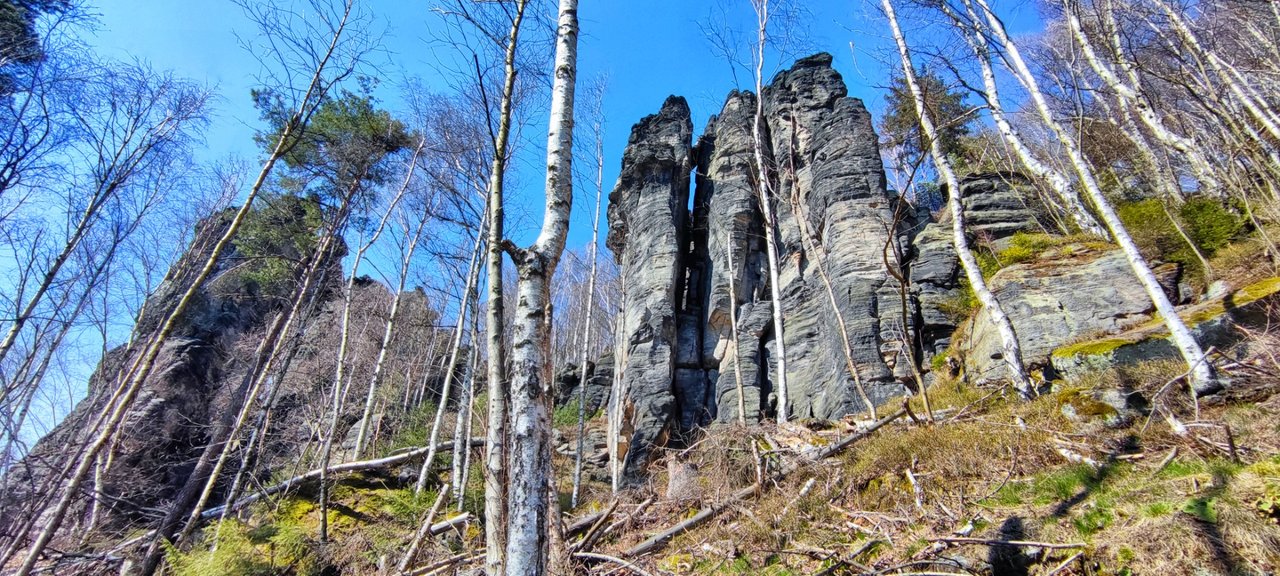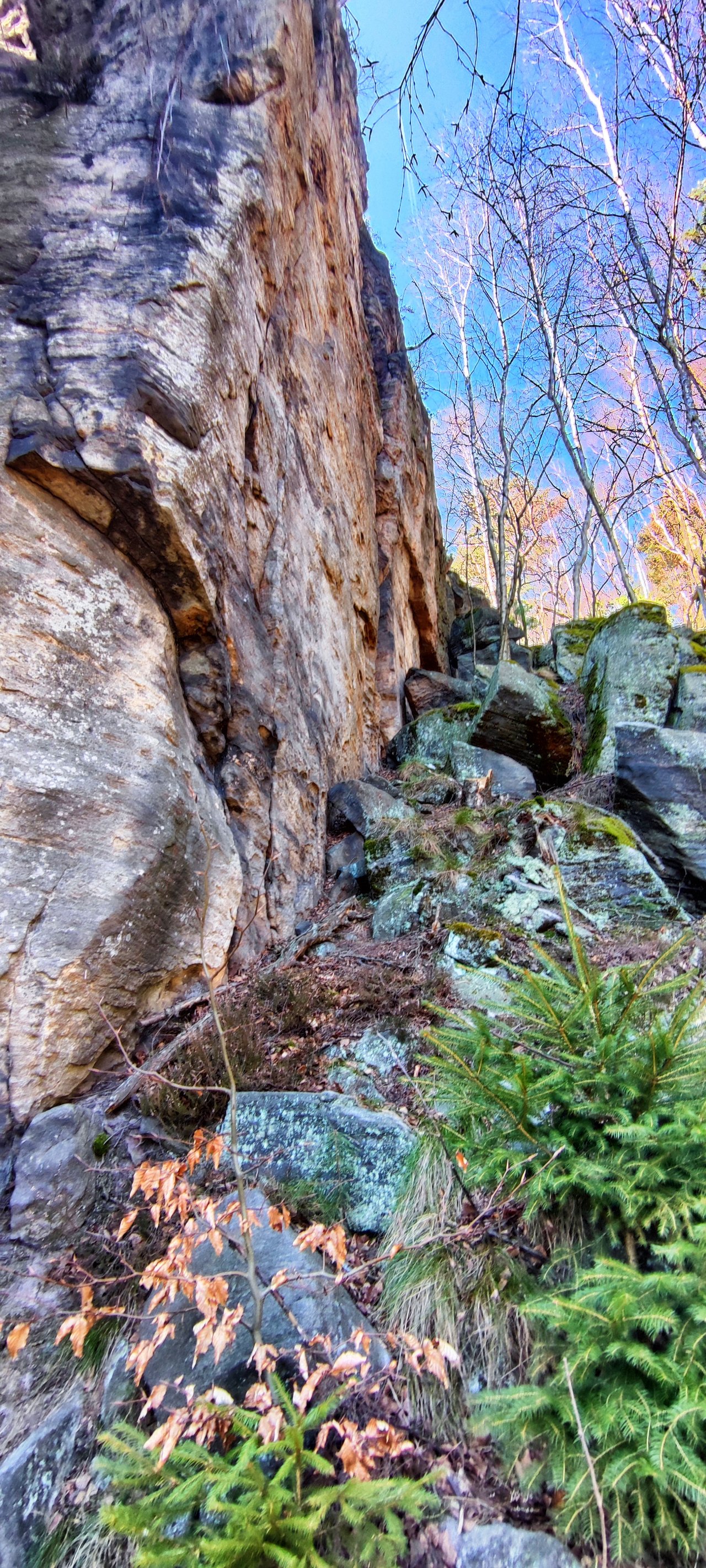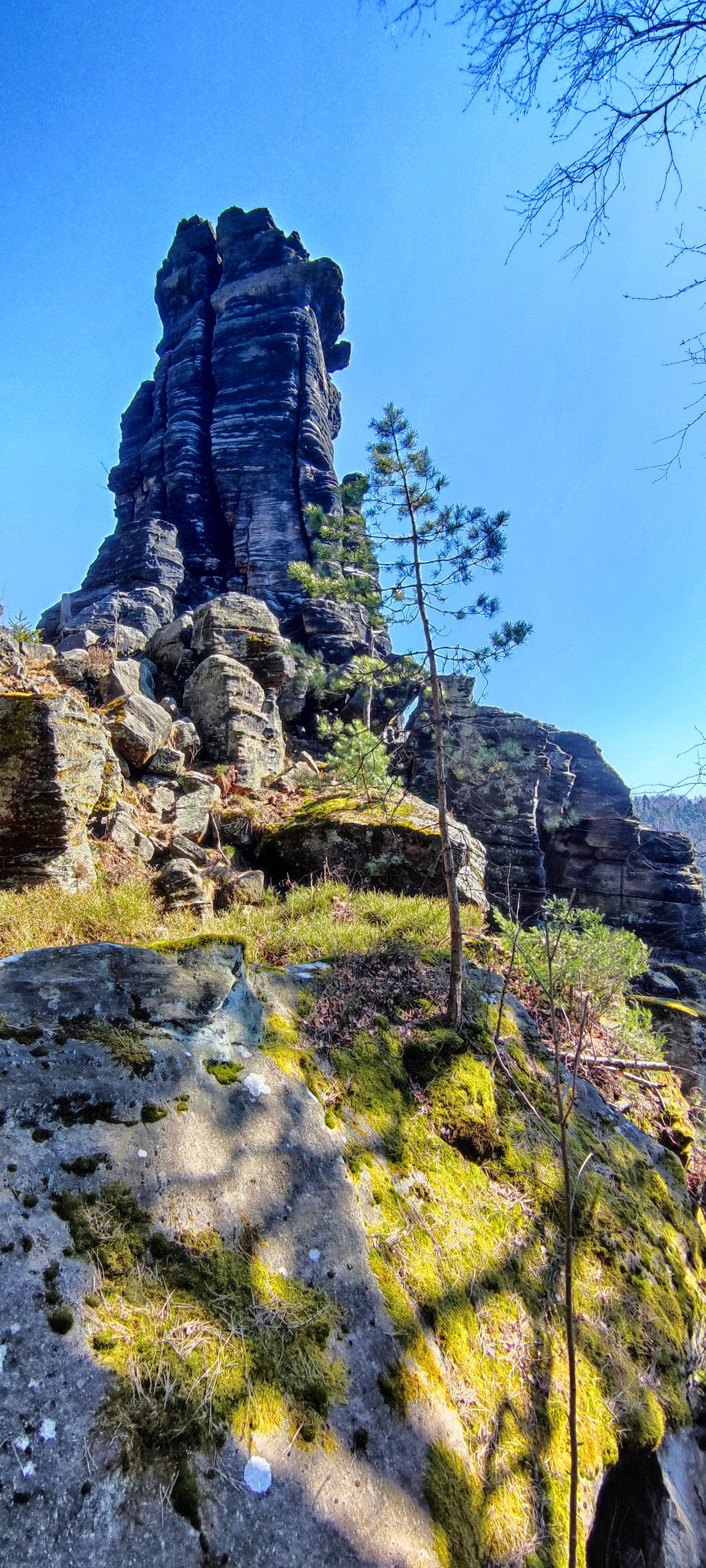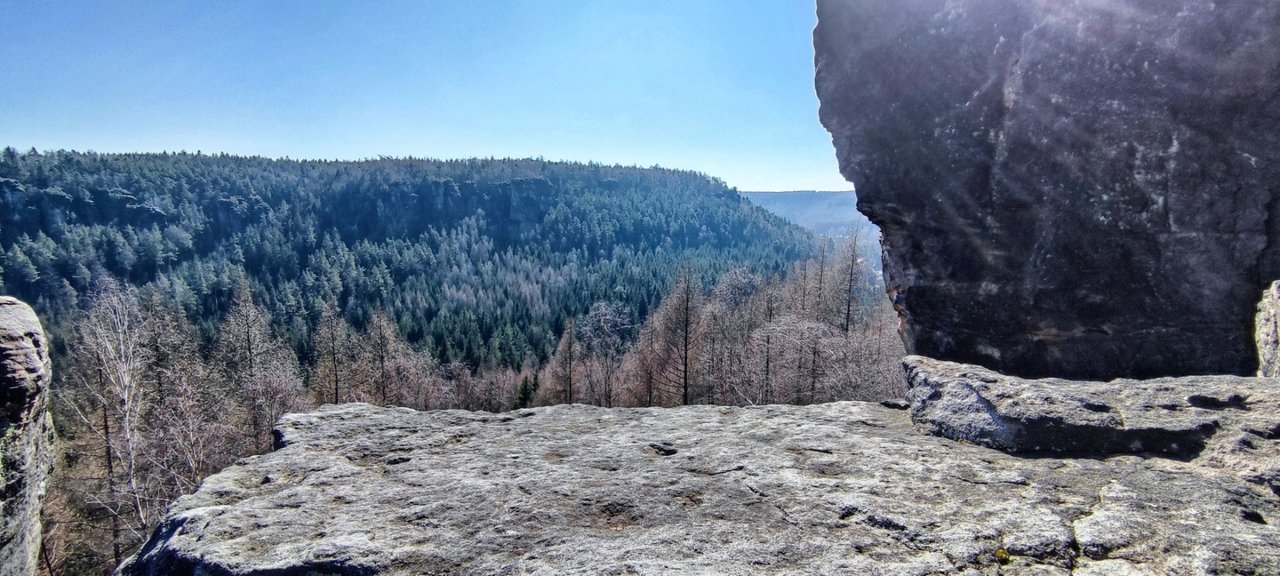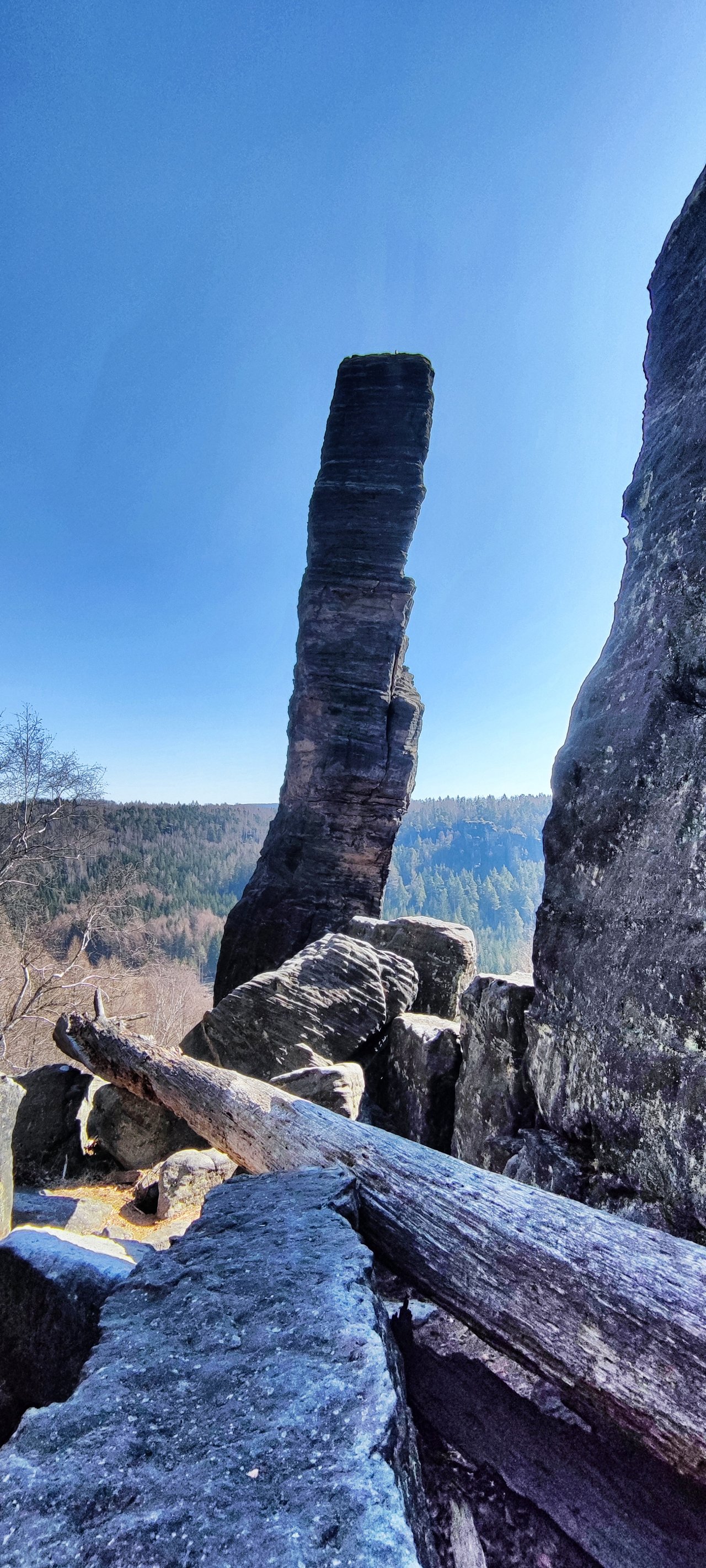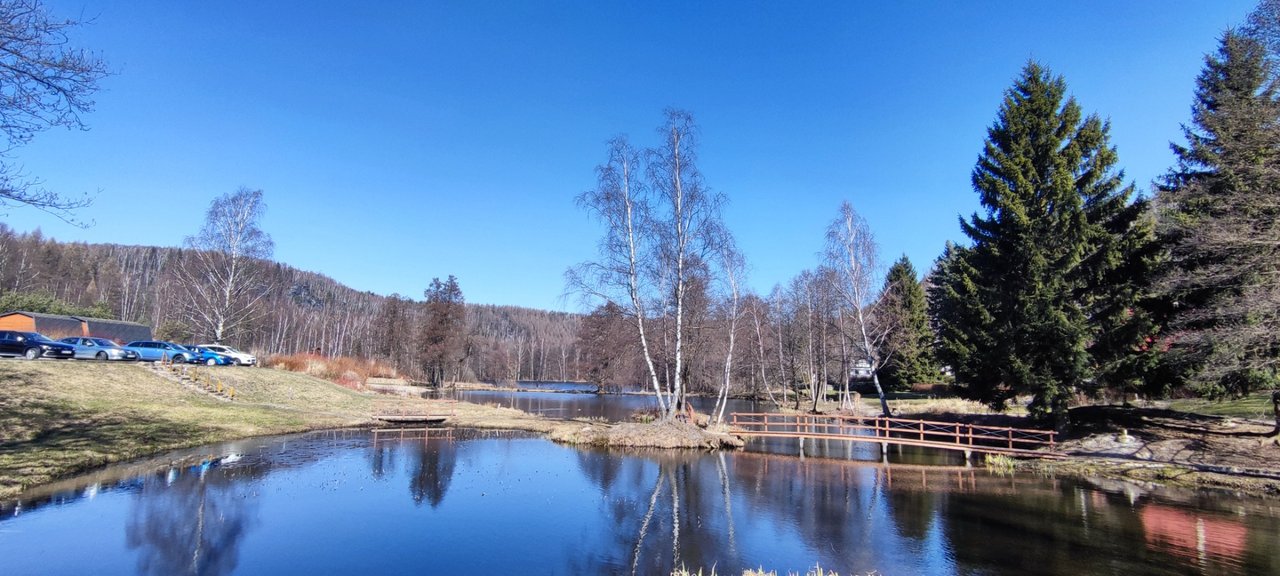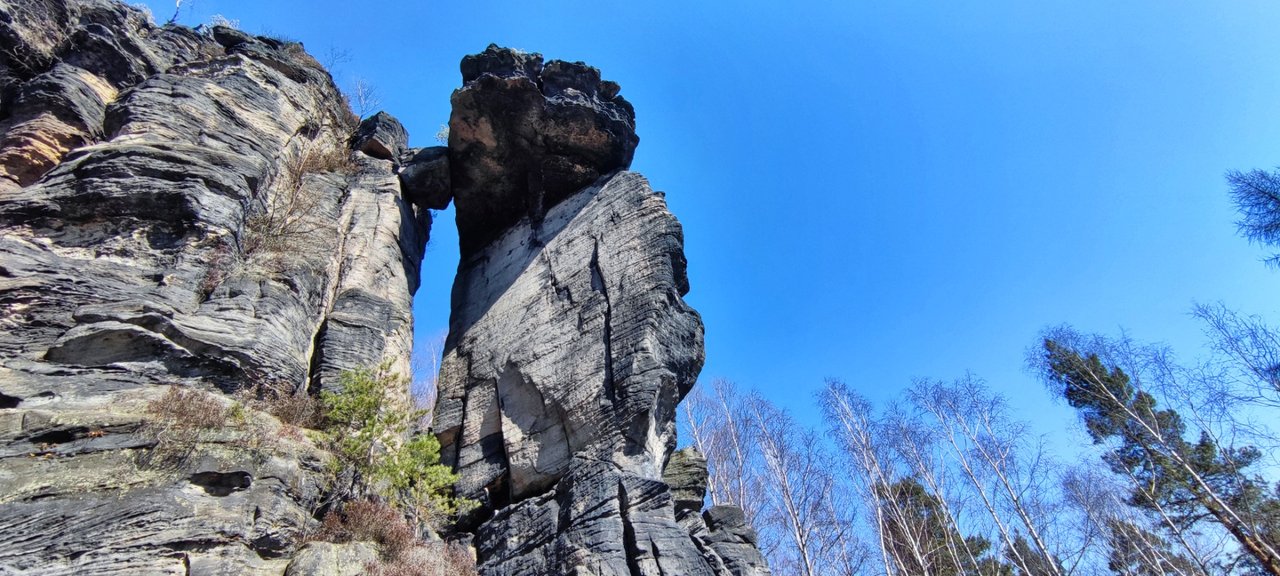After weeks in Poland we're entering the Czech Republic. After a visit at the giant "Projekt Riese", the last Nazi-fortress, we see lost place beauty, the Palace of Jezeri.
We've been drinving just a little further, away from the enchanted Jezeri Castle, which has been waiting for years to collapse into a monstrous coal mine. There are none here, on the old Saxon-Bohemian Silver Road, which leads us directly into a land that was never itself, but always remained the same. For the Ore Mountains, on the southern side of which we find ourselves, are so beautiful that no ruler or political system could destroy what makes them so beautiful.
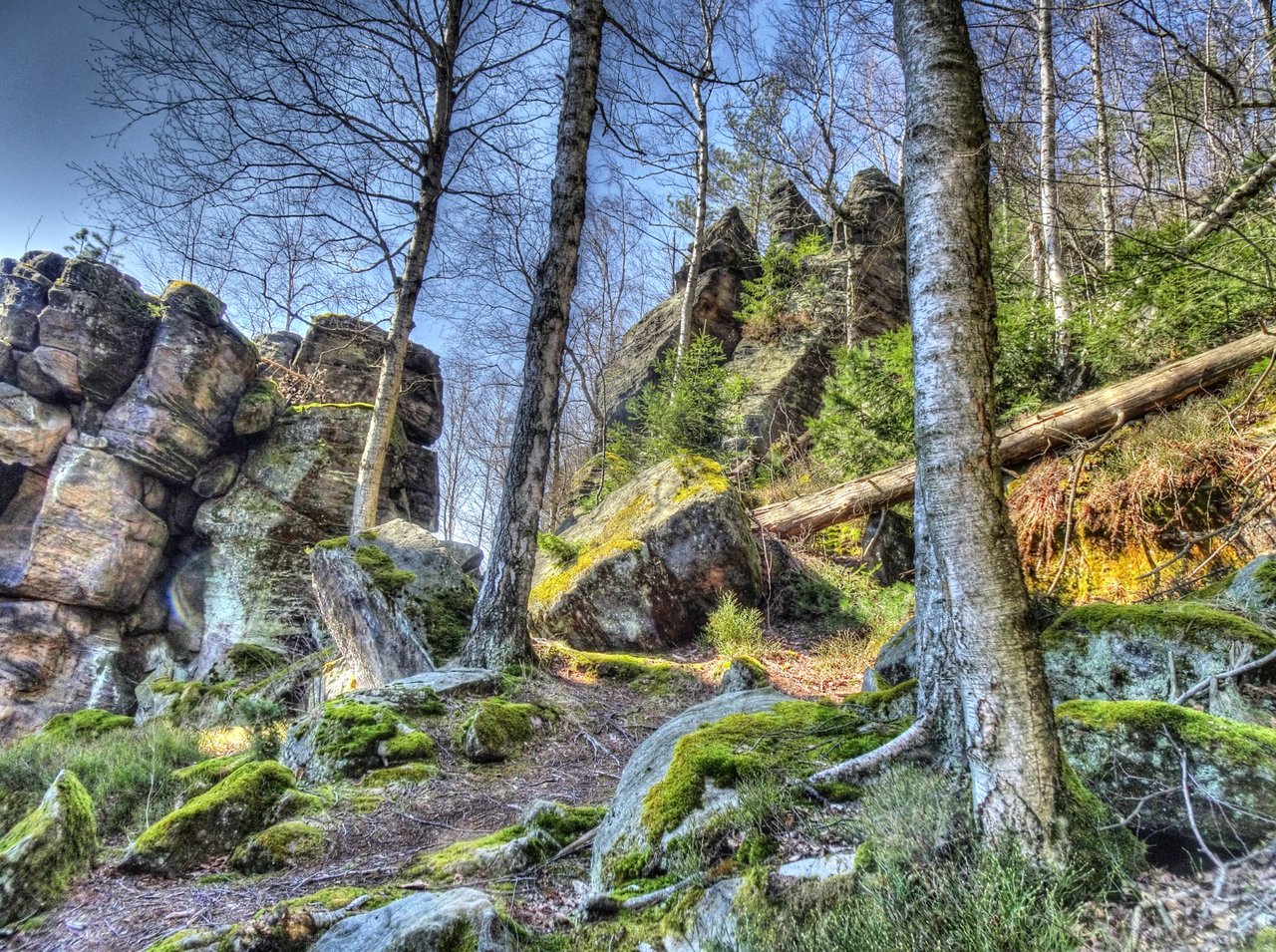 It's a jungle
It's a jungle
At the Grace of God
Near Karlovy Vary in Czech we find a tiny spot that is now called Ostrov. In the past, the few houses right on the German border were known as village Schlackenwerth. A modest name for an area that likes big names. "Grace of God" and "Hercules Fresh Luck," for example, are the names of two of the numerous show mines along the 275-kilometer-long Silver Road.
 A jungle under needles
A jungle under needles
Ostrov, on the other hand, is as unknown as it is pretty: The little village lies behind the seven mountains, in a long valley https://www.boehmisches-erzgebirge.cz/pictures/Schlackenwerth/index.html, between rock needles on one side. And rock needles on the other. The famous Saxon Switzerland over in Germany is a humble imitation of the nature that can be seen here on the czech site.
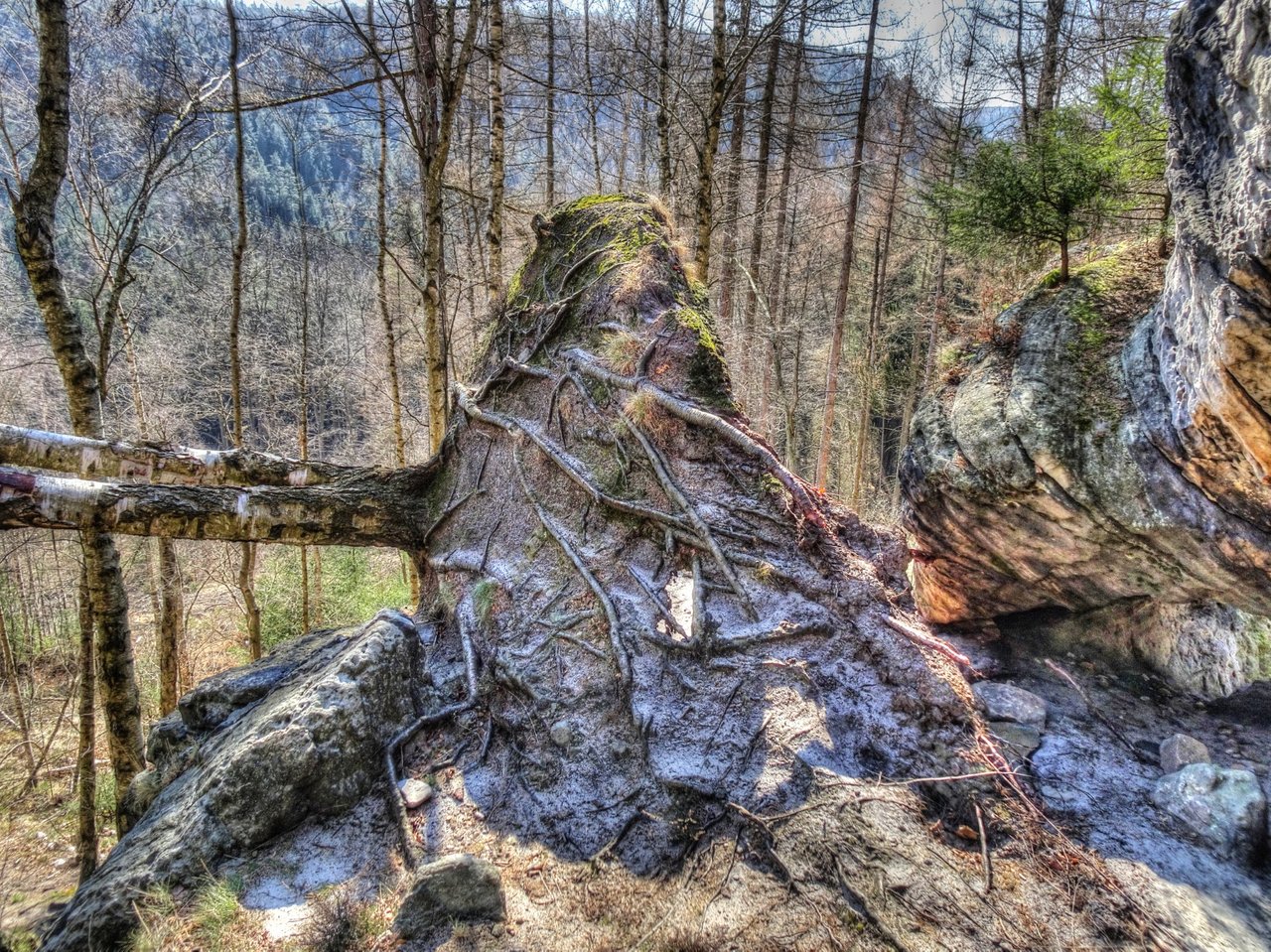 With fallen trees
With fallen trees
At the foot of this unknown side of the Ore Mountains lies Ostrov, a town where you can still see the unmistakable signature of the 1950s. The architecture of socialist realism determines the center of the town, at the same time you can find here a historical core with a park, castle buildings and the Holy District.
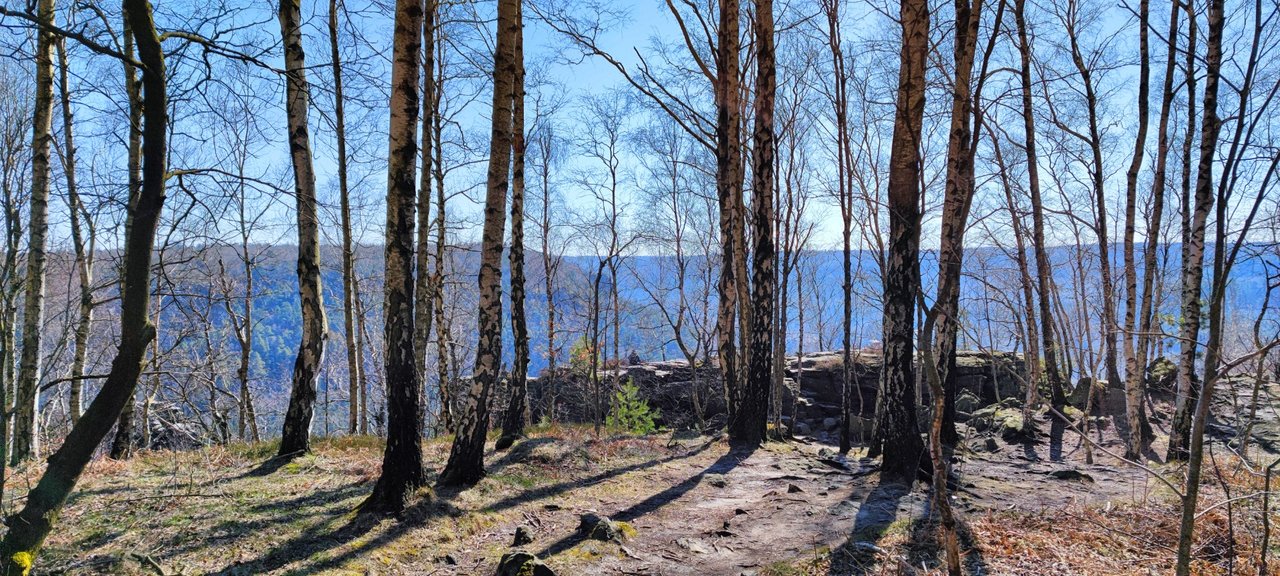 Just before the cliff: The border plate
Just before the cliff: The border plate
Going to the heart of the forest
The Holy District monastery complex is located on the western edge of the center and enchants lovers of opulent Baroque architecture. Here you will find several chapels, the church of the Annunciation or the monastery garden.Outside, however, in the middle of the forest, you will find the other Ostrov, tiny and a big surprise at the same time.
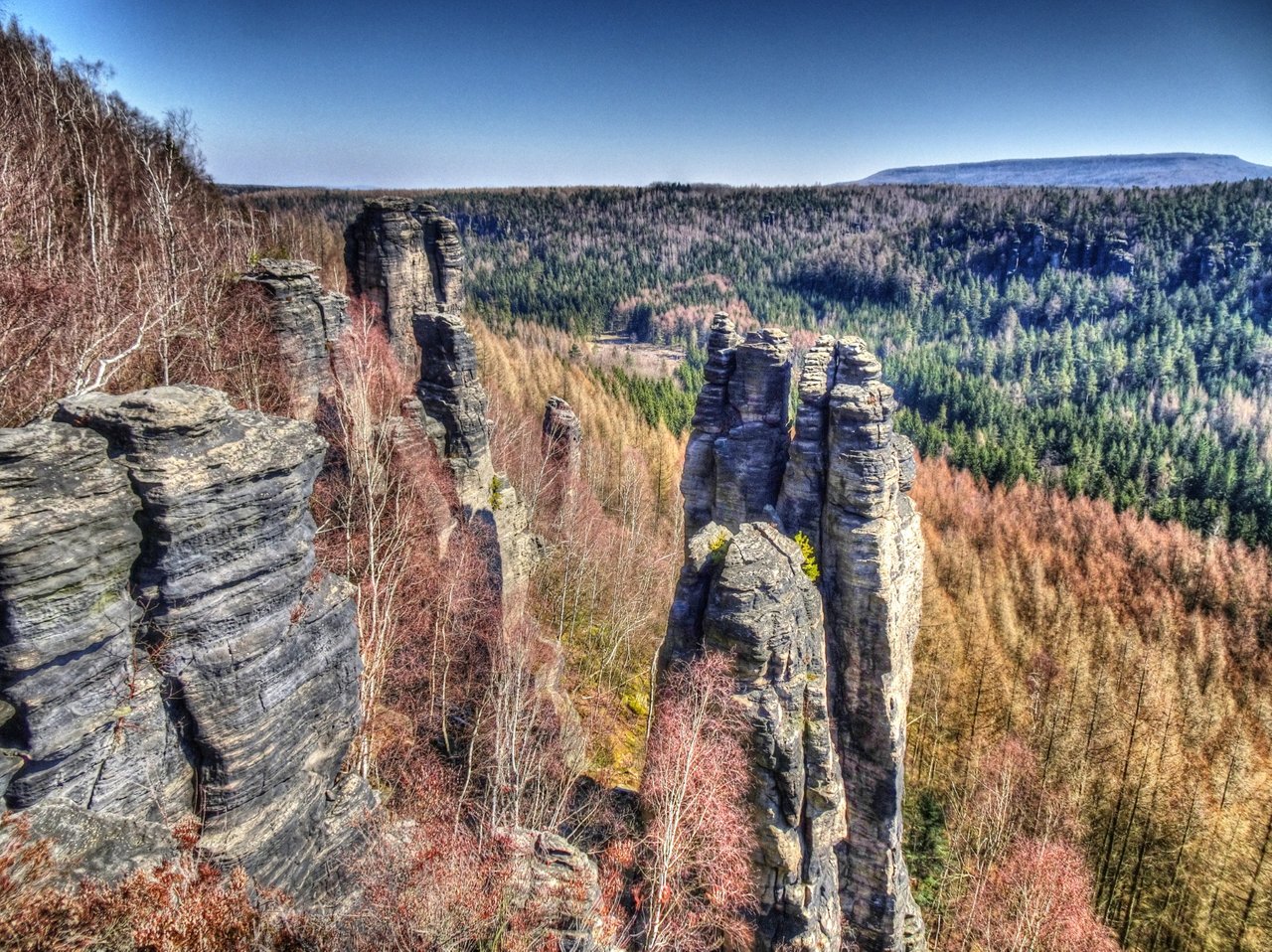 Strange rocks
Strange rocks
It is a dreamlike place, the birds are chirping, the sky is bright blue. A single idyll, as if you were a whole world away from the hustle and bustle of everyday life. You can walk here for hours through foliage and moss without seeing more than trees, rocks and caves. Once there is an old hut in the middle of the forest, in front of it a wonderful old armchair. It looks as if someone, tired of the world outside, has retired here forever.
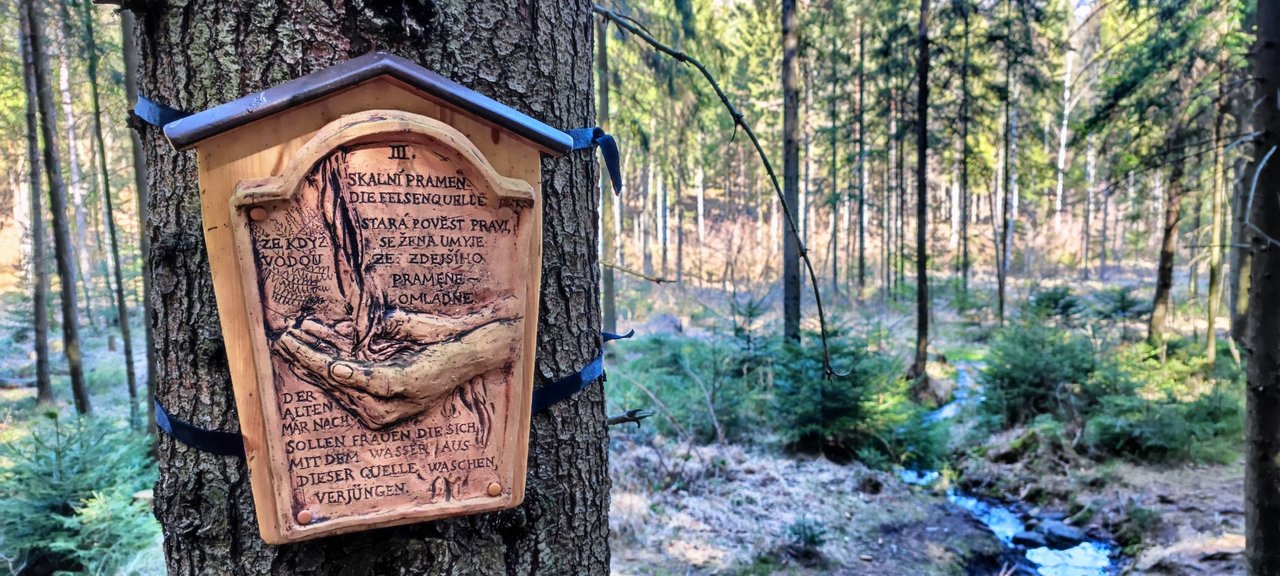 A fresh quell which can make you young again
A fresh quell which can make you young again
Here, except for a few weekend houses, a hotel, an abandoned campsite and an abandoned customs and border station, there is nothing but nature. Towering overhead are the rocky outcrops so unique to the sandstone Elbe Sandstone Geomorphology. The eighth wonder of the world - this is how the Karlovy Vary doctor Michael Raphael Schmutzer called the area around Ostrov already in the 17th century.
Across the border
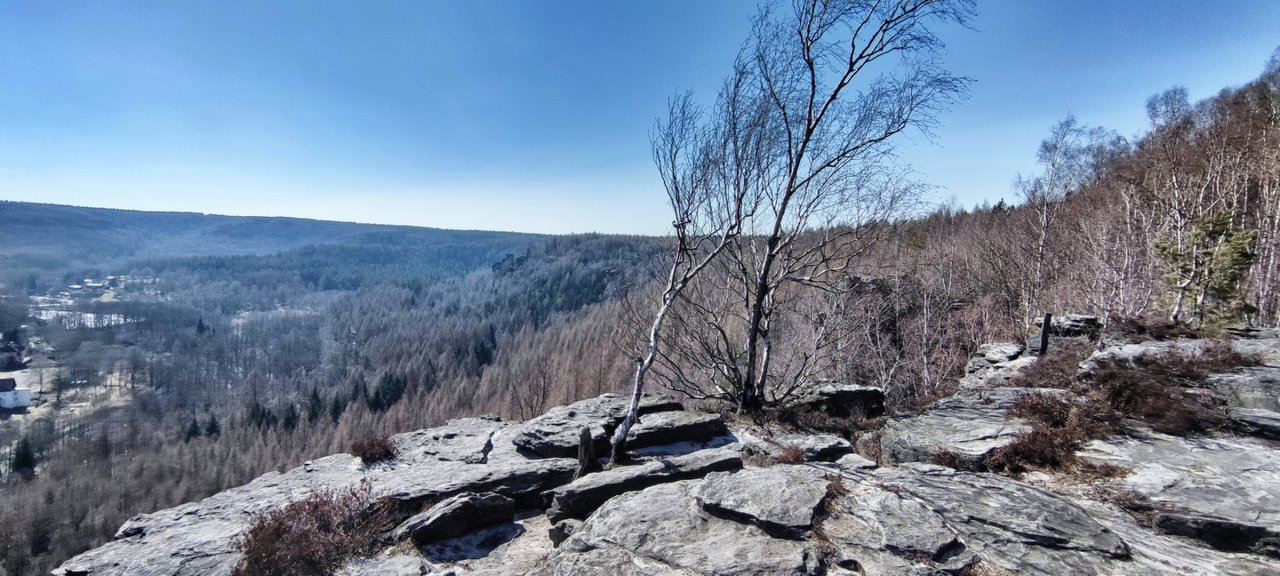 On the top of the hil
On the top of the hil
Long hiking trails lead here back and forth across a border that is no longer a border. Only some standing boundary stones are all that reminds of the past - and a large, flat rock that they call the "border plate".
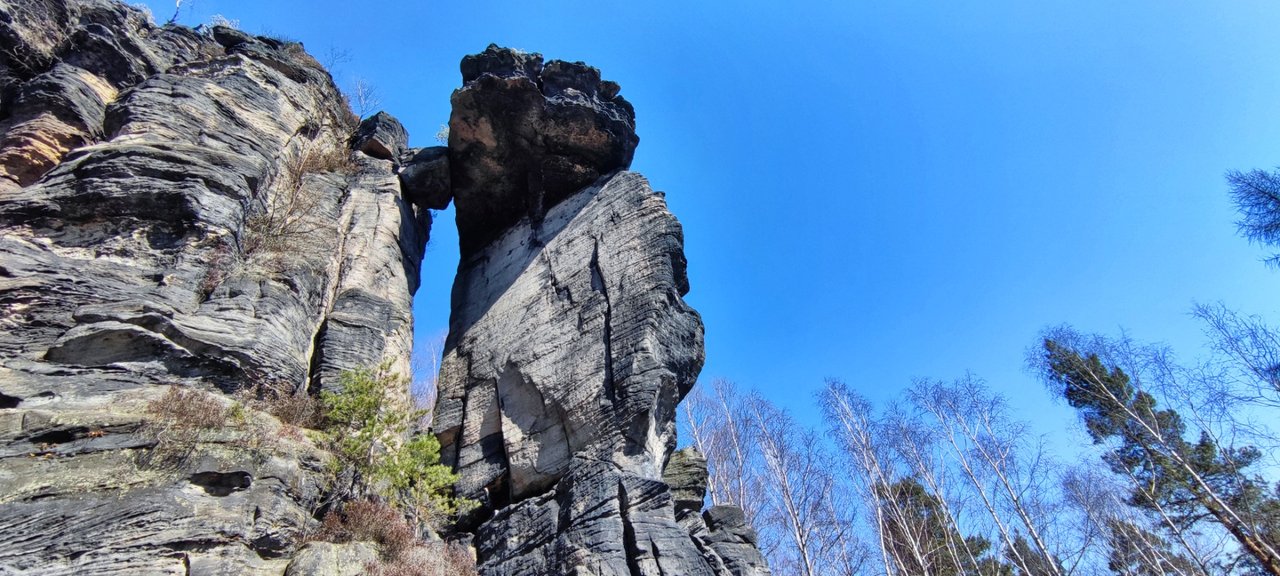 It's like the Kjeragbolden in Norway
It's like the Kjeragbolden in Norway
You have to climb a long way up, up a very steep slope and then across crazy rock formations along a narrow path whose shape keeps changing to this day. There are no information boards, no signposts either. But it is impossible to get lost. To the left is always the deep valley, to the right the mountain slope and in front between the towering rocks the flat surface of the border plate, from which one can look far into the valley.
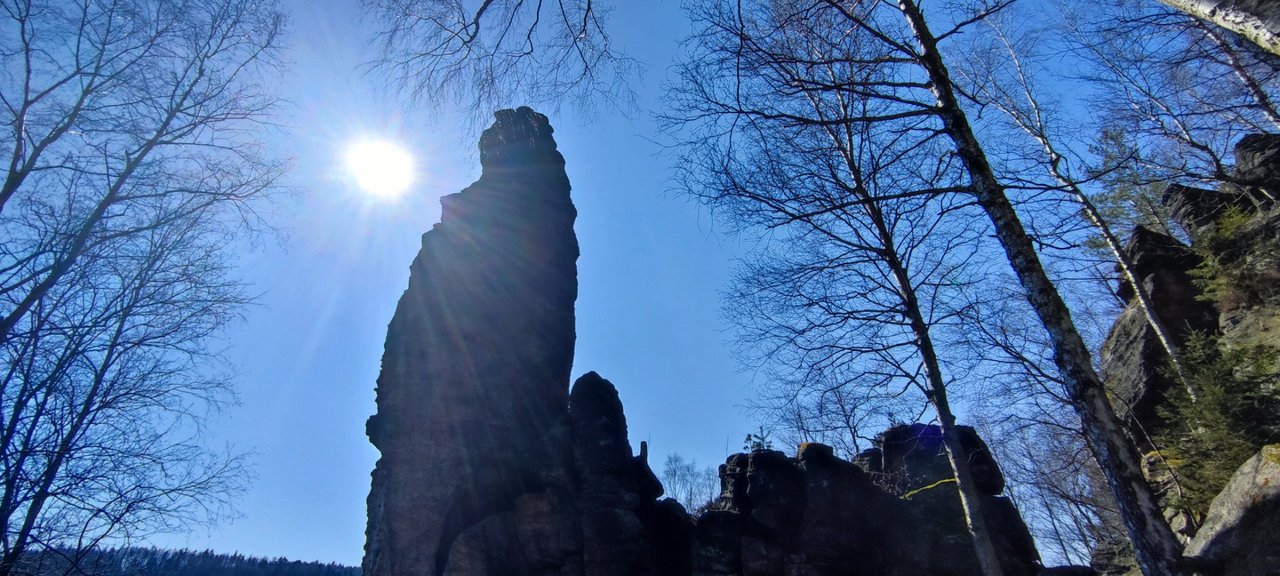 Sun is burning the sandstone
Sun is burning the sandstone
The border plate
This is already the German side, probably, it is not marked. But there are benches and a shelter. Later there are signs to the uranium mines, where prisoners had to slave in former times. More beautiful than this memory is the view of the nine ponds, which were created here in the long past to breed fish. These Borecké rybníky, surrounded by meadows, pastures and beautiful small forests, are today home to ducks, swans and even the very rare large newt.
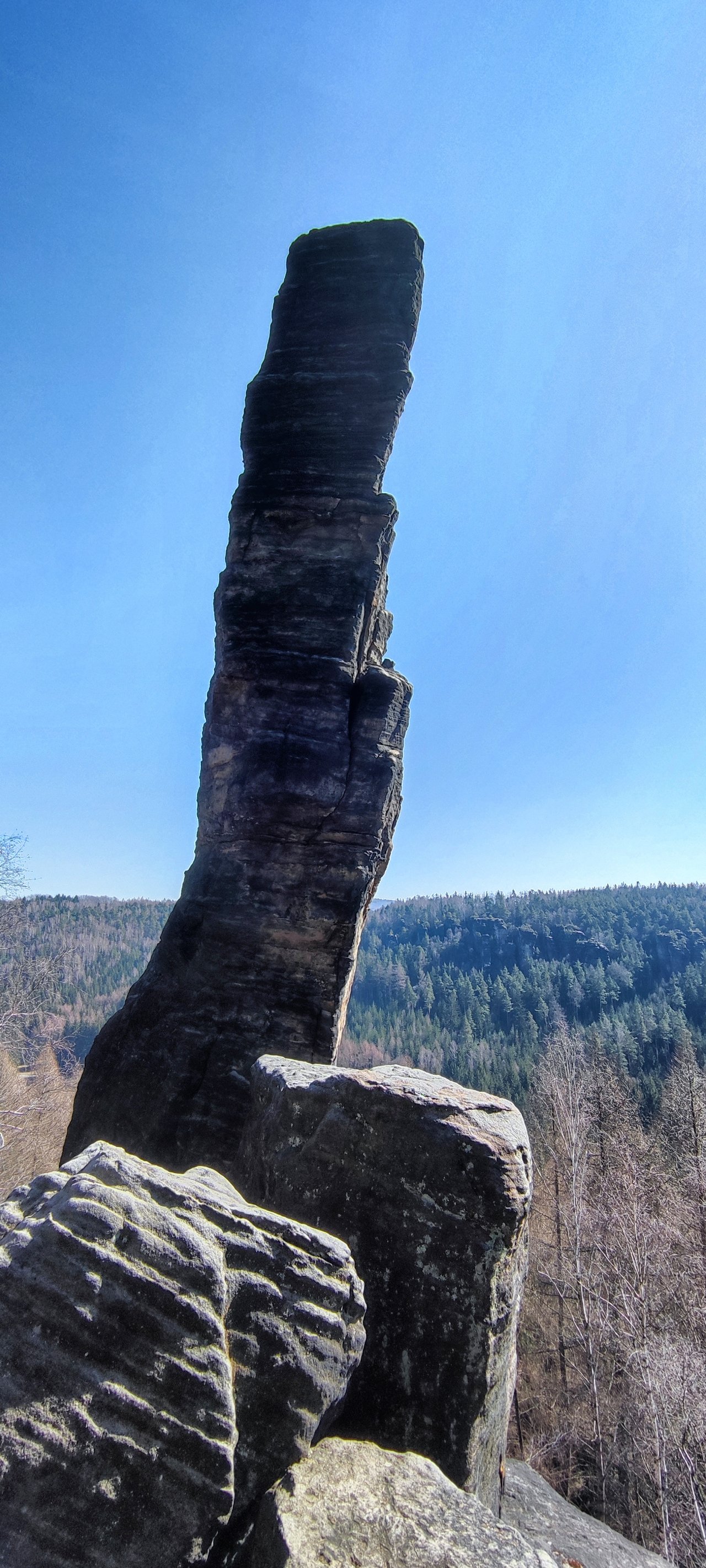 The wind forms this needles
The wind forms this needles
You can descend again without taking the same path. Or, if the weather and equipment are right, take the long trail that leads toward Germany and there go onto a branch of the Silver Road. This place used to be called miserable because the soil here was very barren.
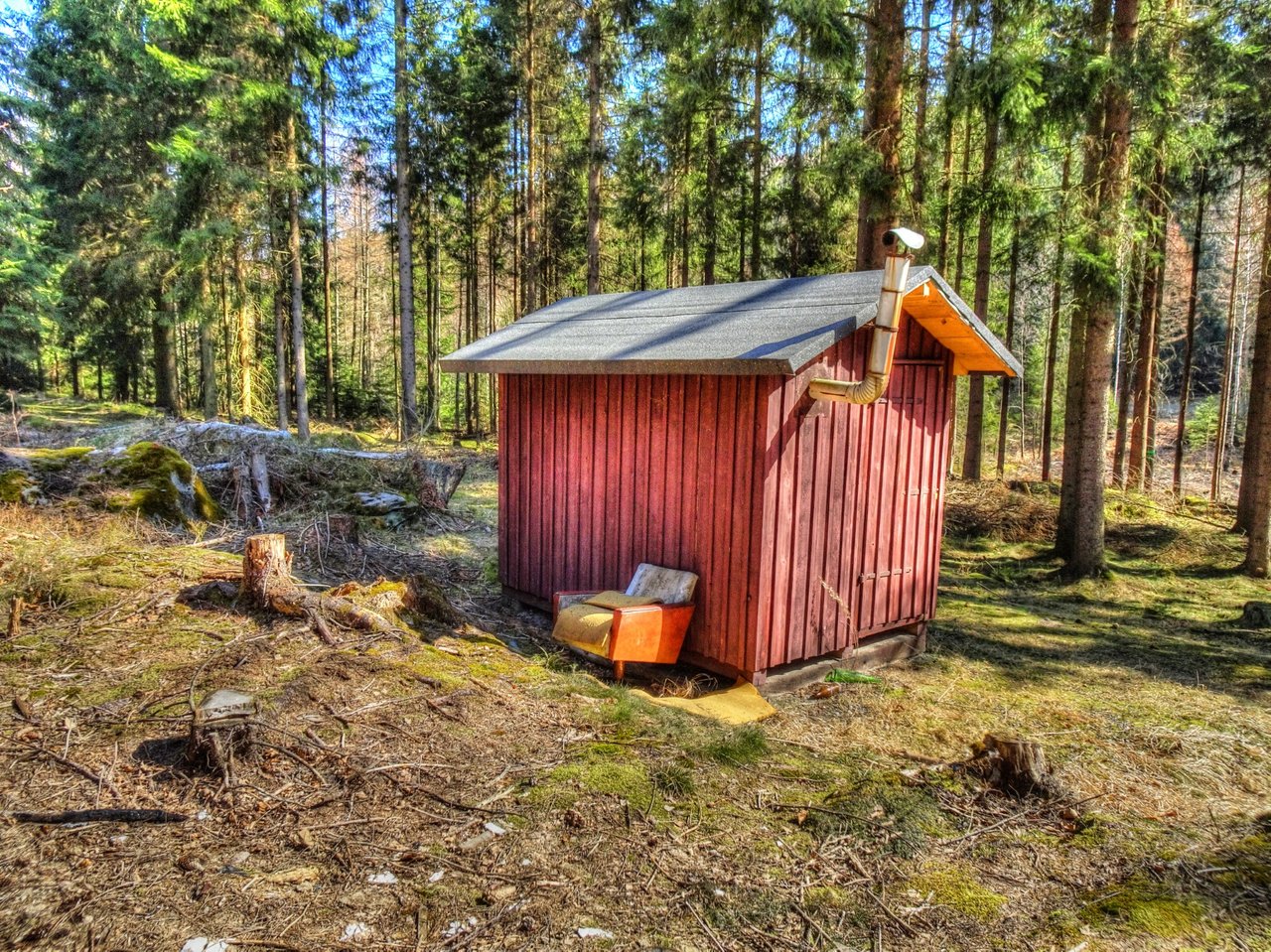 Someone is living in this forest
Someone is living in this forest
The term Eiland was later derived from this - an island in the forest. Then the Seidler noticed red traces in the rock and they discovered rich iron deposits, which were also smelted on the spot.We look over from our elevated spot to the other side of the impossibly beautiful gorge and decide that we absolutely must get up there, too. More rock needles, even narrower and more filigree.
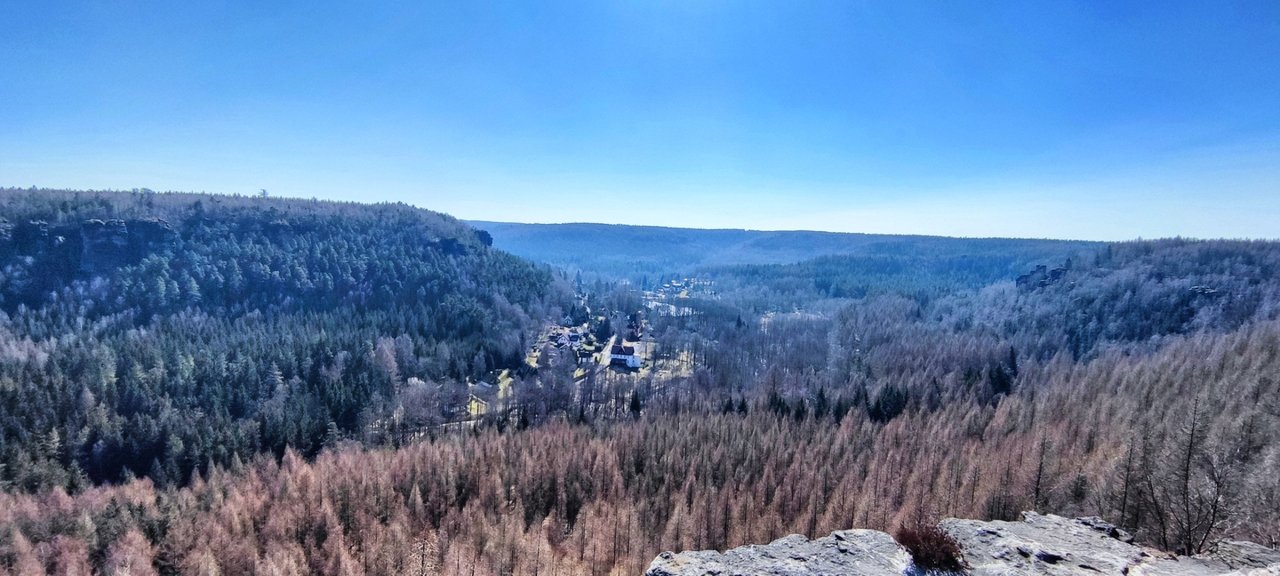 The Island
The Island
The end of the trail
More forest, more undergrowth and even more secluded paths where you can certainly walk for days without meeting another human being. Once the world ends, that's for sure, you will be safe here for months if not years. There is not even a cell phone signal. And so one will certainly not even know that all around everything is over.
Thank you for reading and if you like my work please follow me on Hive, Travelfeed or Steem or visit my homepage koenau.de
A few more pictures:
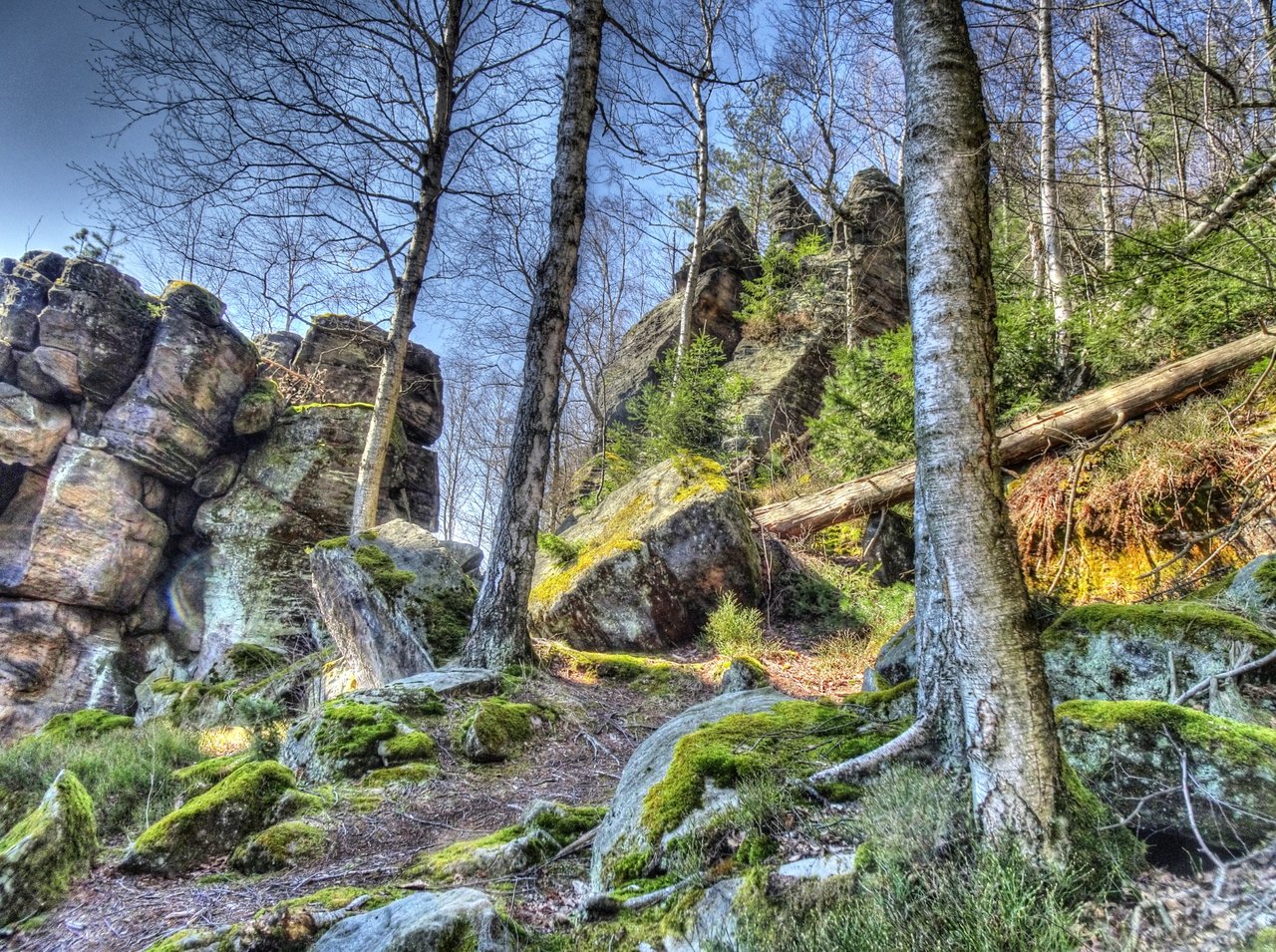 So much nature
So much nature
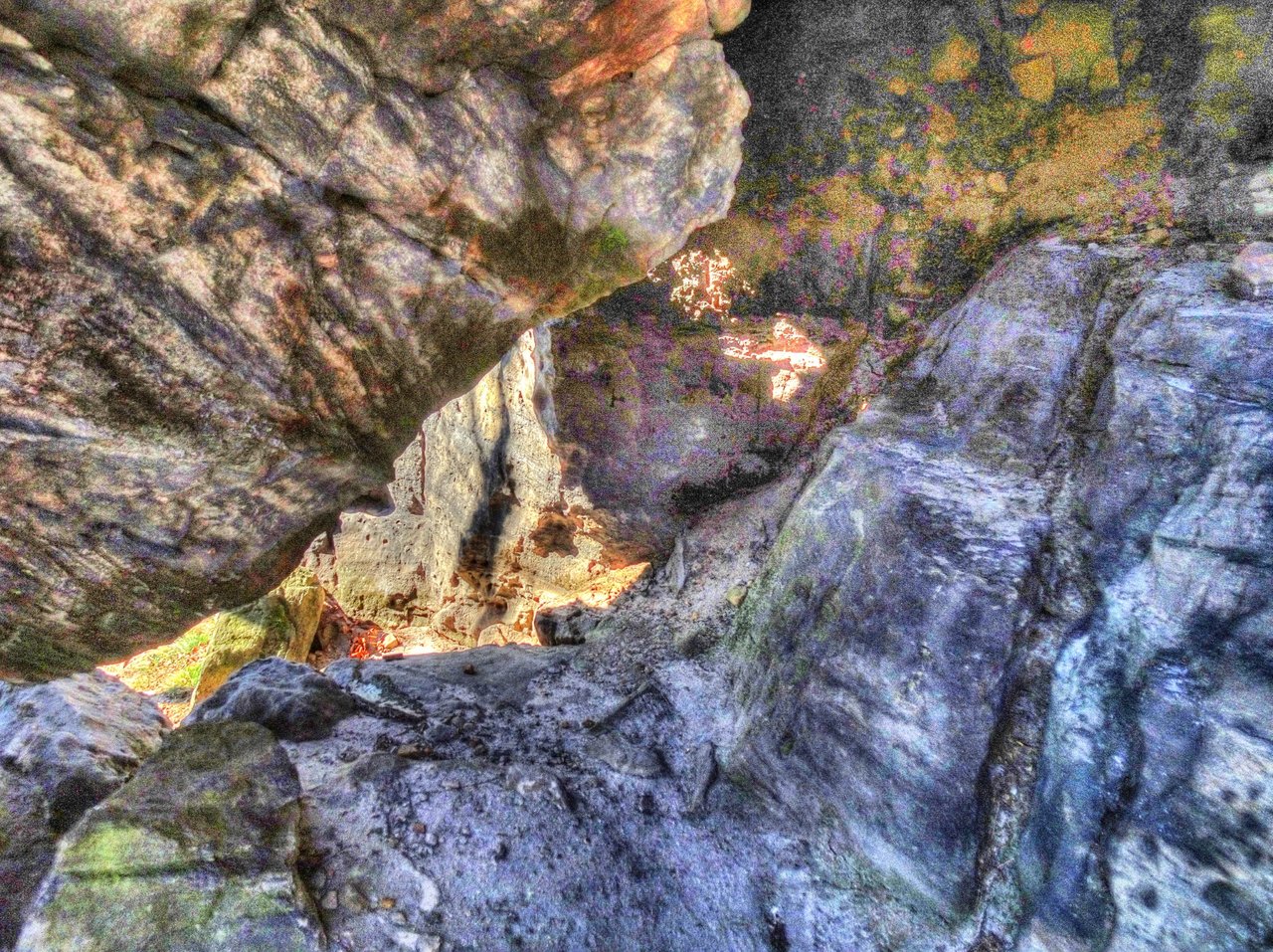 A view through the stone
A view through the stone
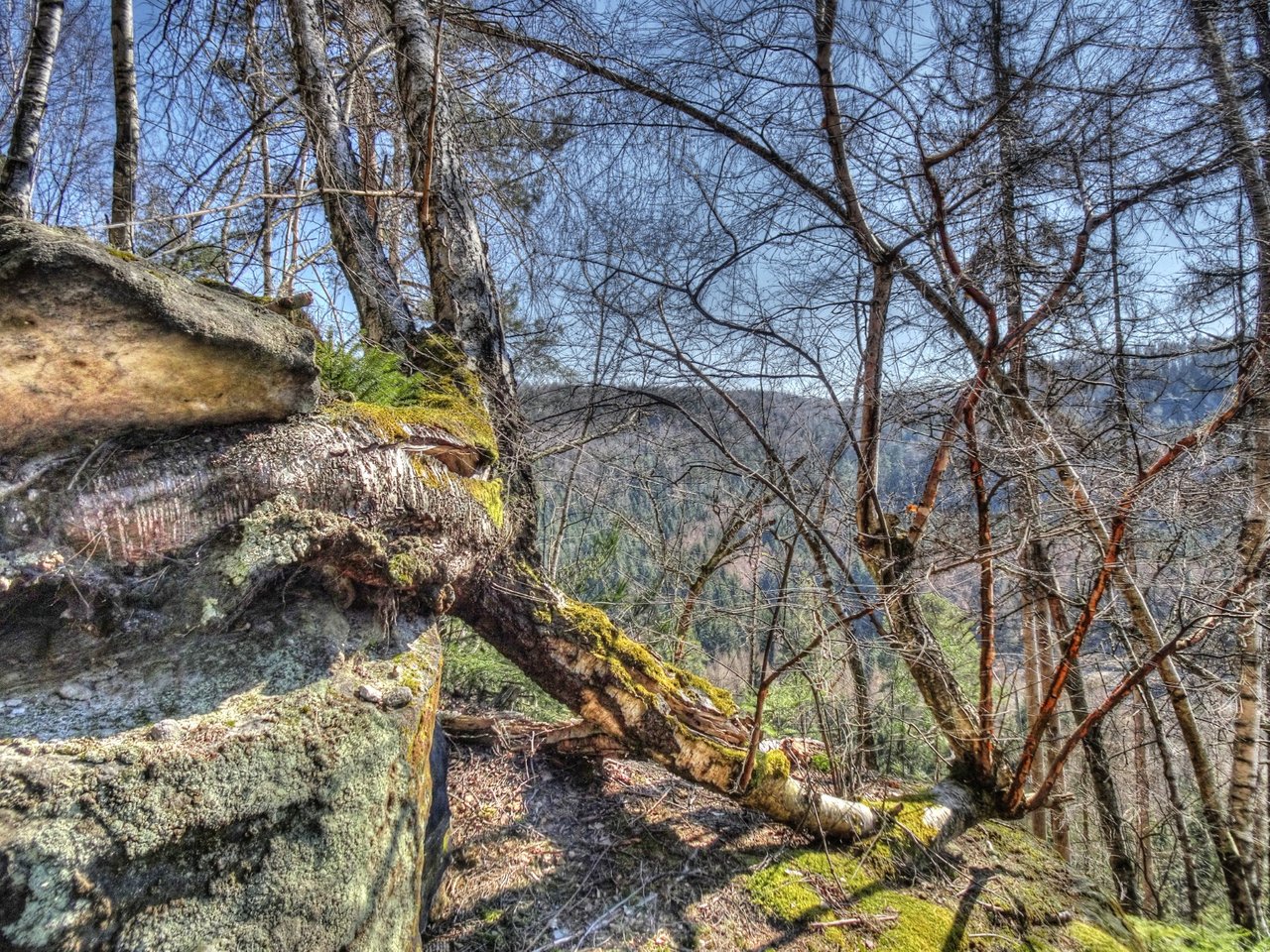 More falling trees - it's not easy to live here
More falling trees - it's not easy to live here
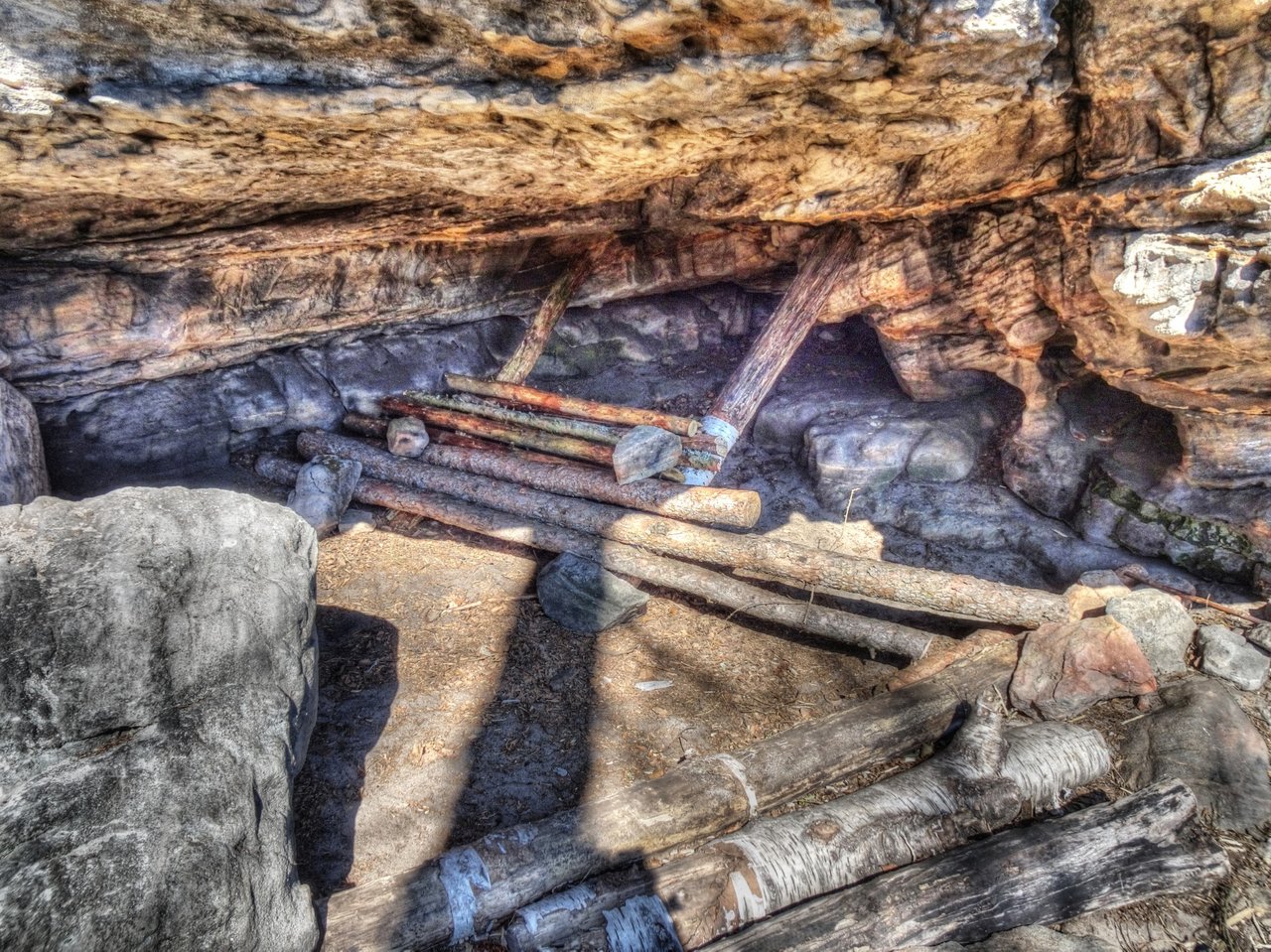 A bed under a stone
A bed under a stone
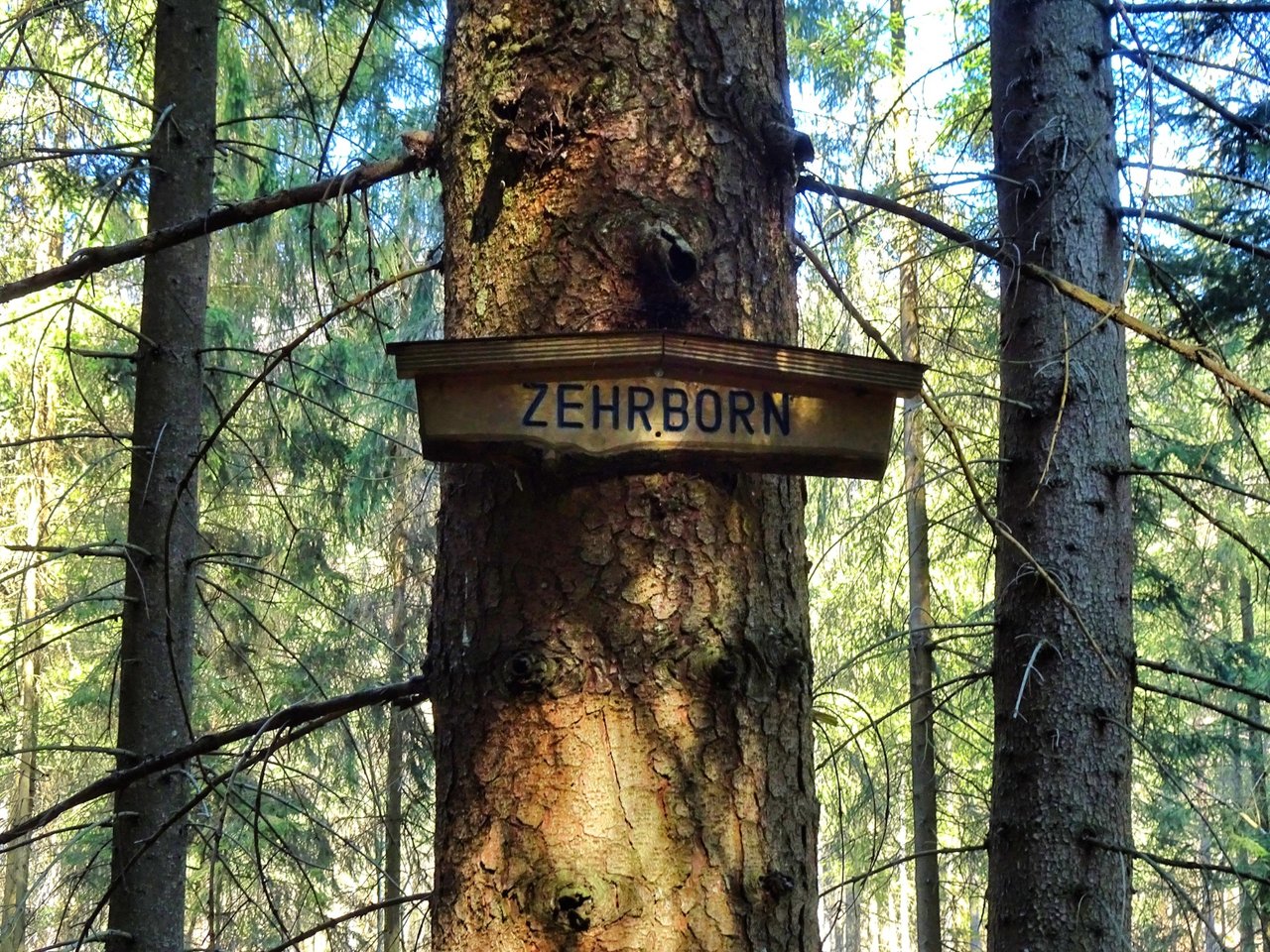 Zehrborn ist teh name of the quell
Zehrborn ist teh name of the quell
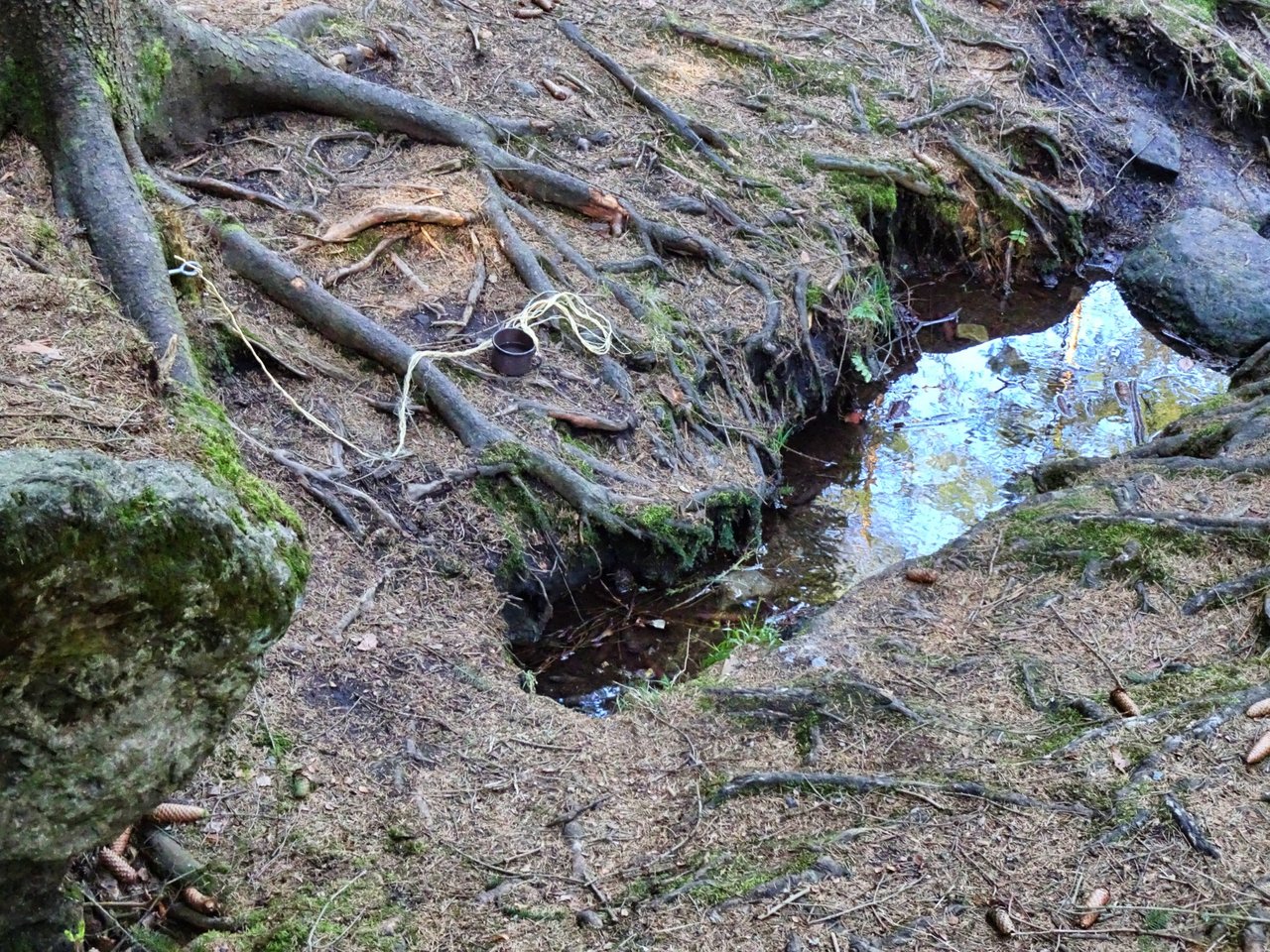 They have a cup to drink
They have a cup to drink
